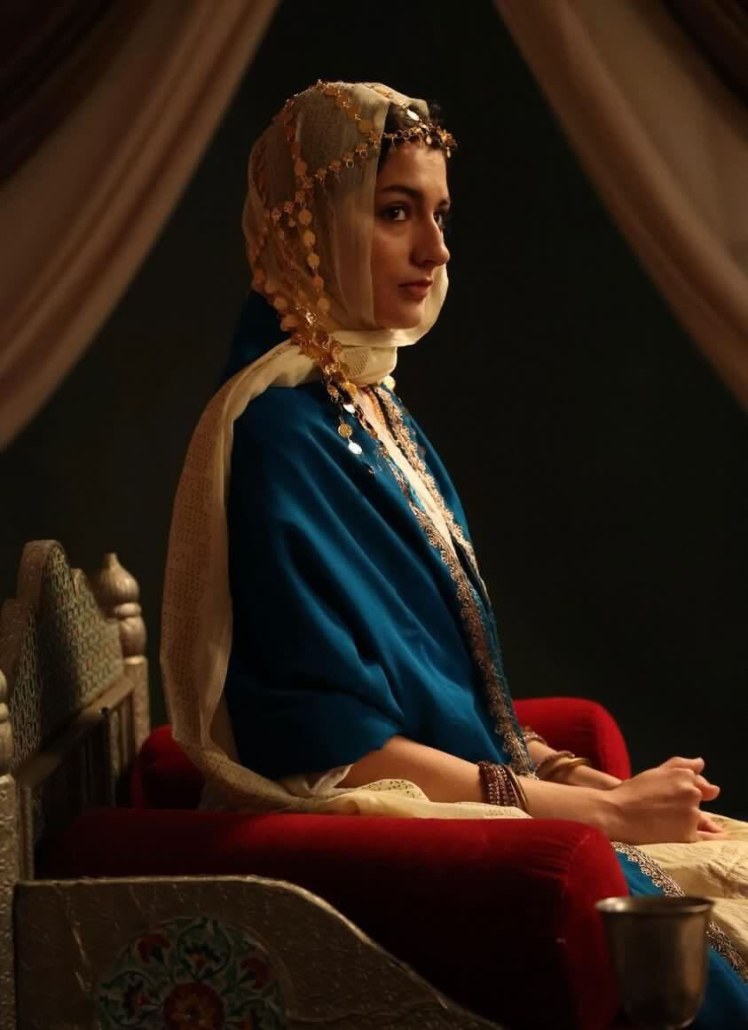Senior thesis film makes SCA history

Zaid Hassan, Sahil Rustami and Charlie McCollum — all seniors majoring in cinematic arts, film and television production — sat in Biriyani Kabob House in mid-November in downtown Los Angeles, awaiting a decision that would shape their foreseeable future. They had been one of the 10 teams in their cohort to pitch their short film to the faculty at USC’s School of Cinematic Arts with hopes for $10,000 in funding. Even with the high stakes, the team knew the final decision wouldn’t impact them — they believed in the story behind their short film “Sultana.”
“We were willing to go down fighting to the last second to make sure this film got made,” said Zaid Hassan, director of the short film. “We were like, ‘if this doesn’t get selected … we’re gonna get funding for it ourselves.”
But they did get selected, and now the almost five-month-long project is set to hit Norris Theater May 11. “Sultana” is based on the true story of the first woman Indian ruler, Razia Sultana, and follows her rise of power with themes of family, identity and culture embedded throughout the film.
Even now, everyone behind the film recalls the moment they were picked for funding with a note of wonder. Not only is it one of the four films selected by USC out of top directors, producers and writers — it’s also the first Muslim senior thesis film the University selected for funding.
“To have this be the first Muslim film, and centered around a woman for an undergraduate thesis–I hope—sets a precedent for more stories like this to be told,” said producer Melanie An, who joined the project after it had been approved for funding.
Screenwriter Sahil Rustami, said the team discovered their film was the first short to be funded when they found a worker for SCA’s archives.
“She searched every thesis that’s been made at SCA and put in a bunch of key words and was like, ‘yeah, you’re the first,” Rustami said.
Screenwriter Sahil Rustami didn’t intend to spearhead a big breakthrough. He had wanted to write about a strong female lead, and after searching the web for inspiration, he stumbled across Razia Sultana. Mesmerized by her life and rise to power, he dove into Wikipedia, and after hours of research, he knew it was exactly what he wanted to write about.
“I was like, ‘This is the coolest thing ever. Why have I never learned about it? Why does no one I know know about it?’” Rustami said.
With a little bit of a calling mixed in with deadline pressure, he wrote the first draft in three hours. The script, Hassan said, went through “20 to 30” rewrites and continued to change all the way up to post-production.
Hassan wanted to pair up with Rustami immediately. He was initially worried that he wouldn’t be able to relate to any of the scripts that he was required to choose from. Then, at the bottom of the list, he saw “Sultanta.”
“I read the script and I was like, okay, this is a crazy script,” he said. “But also it was a script I could make.”
Their next step was to look for a producer. There were no Muslim producers in their cohort, so instead they searched for someone who was dedicated to the story. They were lucky enough to find Charlie McCollum. From trying biriyani kabobs to visiting the local mosque, he fully devoted himself to learning about the culture.
“I was just lucky to be a part of a team that was willing to answer [my questions] and had full faith in me to help their vision for this story get told,” McCollum said. “It’s been great to just see the story take off. It’s bigger than us … it’s definitely bigger than me.”
Pieces of South Asian and Islamic culture are weaved throughout the short film, including Islamic verses, cultural clothing and scenes where characters speak Urdu. But creating a period piece — a film not set in modern times — was no easy feat. The group realized the boundaries of their vision when critics met them with skepticism.
“It was so amazing and such an eye opening experience,” said Rustami in regards to being chosen as a thesis film and receiving support. “But with that came a lot of downsides, too, in that a lot of people kind of were doubting us, who were calling the project very ambitious, and we were just held to a much higher scrutiny because no one had ever seen anything like it before.”
But this has only motivated the team to push forward. While the film includes representation, their mission is to properly portray the universal human experience and to create a film that teaches its audience as much as it gives them something to relate to. To McCollum, letting the story reach others is the most important part.
“The power of films in general is making people more interested in a subject they wouldn’t be able to experience on their own,” McCollum said.
“By the end of it, we’re going to be able to get the vision across,” Hassan said. Then he smiled: “Yeah, that’s the most exciting thing about it.”

